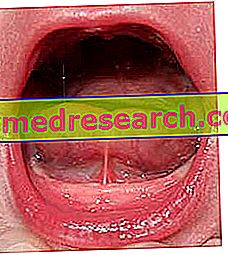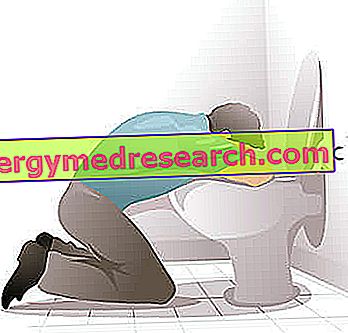
What is Leganto - rotigotine?
Leganto is a range of transdermal patches (a type of patch that allows a medicine to be administered through the skin). Each patch releases 1, 2, 3, 4, 6 or 8 mg of active ingredient, rotigotine, over a 24-hour period.
The medicine is identical to Neupro, already authorized in the European Union (EU). The pharmaceutical company that produces Neupro has accepted that its scientific data be used for Leganto ("informed consent").
What is Leganto - rotigotine used for?
Leganto is indicated in adults to treat the symptoms of the following diseases:
Parkinson's disease. Leganto is used on its own in the early stage of the disease or in combination with levodopa (another medicine used in Parkinson's disease) at any stage of the disease, including the more advanced when levodopa starts to lose its effectiveness;
Moderate to severe restless legs syndrome (a disorder that irrepressibly pushes the legs to stop feelings of discomfort, pain or discomfort felt in the body, especially at night). Leganto is used when the disorder is not due to a specific cause.
The medicine can only be obtained with a prescription.
How is Leganto - rotigotine used?
Leganto is applied once a day, approximately at the same time each day. The patch should be applied to dry, clean and healthy skin, in correspondence with the abdomen (belly), thighs, hips, hips, shoulders or upper arms. The patch remains in contact with the skin for twenty-four hours, after which it is replaced with a new patch to be applied in a different application site. The reapplication at the same site must be avoided for two weeks. At the beginning of therapy, the patch dosage depends on the type of disease treated and its progression stage. The dose can then be increased weekly until an effective dose is reached. A special pack is available with patches of four different dosages, to facilitate the start-up phase of therapy for Parkinson's disease at an early stage. In patients with early-stage Parkinson's disease the maximum dose is 8 mg / 24 h, while for those in advanced stage it can be increased up to 16 mg / 24 h. In restless legs syndrome, the maximum dose is 3 mg / 24 h.
How does Leganto - rotigotine work?
The active ingredient in Leganto, rotigotine, is a dopamine agonist (ie it mimics the action of dopamine). Dopamine is a messenger substance contained in brain districts that control movement and coordination. In patients with Parkinson's disease there is a loss of dopamine-producing cells, thus a reduction in the amount of this substance present in the brain. This results in a deterioration of the individual's ability to control his movements reliably. Through the skin, Leganto injects a constant quantity of rotigotine into the blood. By stimulating the brain in a similar way to dopamine, rotigotine allows one to control movements and attenuates the signs and symptoms of Parkinson's disease (such as stiffness and slowed movements). The mechanism of action of rotigotine in restless legs syndrome is not yet fully known. This syndrome is thought to be caused by alterations in the functioning of dopamine in the brain, which can be improved with rotigotine.
What studies have been conducted on Leganto - rotigotine?
In Parkinson's disease, Leganto was compared with placebo (a dummy treatment) in four studies involving 830 patients in the early stage of the disease and 842 patients in the advanced stage. Two of these studies also compared Leganto with other dopamine agonists (ropinirole for early-stage patients and pramipexole for those in advanced stages). Studies conducted at the initial stage observed the number of patients who had at least a 20% improvement in symptoms, detected by a specific standard questionnaire. Advanced stage studies have measured the duration of "off" time intervals throughout the day (ie when the symptoms of Parkinson's disease were such that they did not allow a normal life). For moderate to severe restless legs syndrome, Leganto was compared with placebo in two main studies involving 963 patients. The main measure of effectiveness was the change in symptoms between the start of the study and six months of constant dose therapy, measured according to two reference clinical scales.
What benefit has Leganto - rotigotine shown during the studies?
Leganto was more effective than placebo in the treatment of Parkinson's disease. In early-stage disease, 48-52% of Leganto-treated patients reported an improvement in symptoms compared to 19-30% of those treated with placebo. Leganto was less effective than ropinirole: patients treated with ropinirole reported an improvement in 70% of cases. In advanced Parkinson's disease, patients treated with Leganto experienced a greater drop in "off" time intervals than those taking placebo (a 2.1-2.7 hour decrease with Leganto, compared to 0, 9 hours with placebo). The decrease observed with Leganto was similar to that observed with pramipexole (2.8 hours).
In the two studies conducted on restless legs syndrome, patients treated with Leganto doses of 1 to 3 mg / 24 h showed a more significant improvement than those who received a placebo, as seen from both reference scales.
What are the risks associated with Leganto - rotigotine?
The most frequent side effects (seen in over 1 in 10 patients) with Leganto in Parkinson's disease patients are drowsiness, dizziness, headache, nausea, vomiting and application site reactions such as redness, itching and skin irritation . In patients with restless legs syndrome, the most common side effects (seen in over 1 in 10 patients) are nausea, reactions at the application site, asthenic conditions (ie fatigue, weakness and malaise) and headache. To limit skin reactions it is important to follow the instructions for use of the patch. Drowsiness can compromise the patient's ability to drive. For the full list of all side effects reported with Leganto, see the Package Leaflet. Leganto should not be used in people who may be hypersensitive (allergic) to rotigotine or to any of the excipients. The Leganto support layer contains aluminum. To avoid skin burns, Leganto must be removed before undergoing an MRI or cardioversion (a process that restores normal heart rhythm).
Why has Leganto - rotigotine been approved?
The CHMP decided that Leganto's benefits are greater than its risks and recommended that it be given marketing authorization.
More information on Leganto - rotigotine
On June 16, 2011, the European Commission issued a marketing authorization for Leganto, valid throughout the European Union, to Schwarz Pharma Ltd. The marketing authorization is valid for five years, after which it can be renewed.
For more information on Leganto therapy, read the package leaflet (also part of the EPAR) or contact your doctor or pharmacist.
Last update of this summary: 04-2011.



